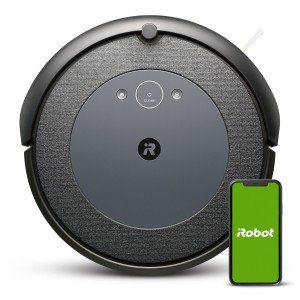The Rise of Self-Cleaning Vacuum Cleaners: Revolutionizing Home Cleaning
As technology continues to develop, so do the tools offered for keeping our homes clean. The standard vacuum, as soon as a staple in home tasks, has seen impressive improvements, most notably the development of self-cleaning vacuum. These ingenious gadgets not just streamline the cleaning procedure however likewise improve performance and effectiveness. Continued out the features, advantages, and factors to consider of self-cleaning vacuum cleaners, in addition to a comparison of popular designs and responses to typical concerns.
What is a Self-Cleaning Vacuum Cleaner?
A self-cleaning vacuum is developed to clean its brushes, filters, and other parts autonomously, minimizing the manual upkeep required by users. This advancement enables constant suction performance, extended lifespan of vacuum parts, and improved convenience for users, making it an appealing choice for hectic people and households.
Secret Features of Self-Cleaning Vacuum Cleaners
- Automatic Brush Cleaning: Self-cleaning vacuums typically include a system that gets rid of hair and debris from brushes during or after cleaning cycles.
- Filter Maintenance: Some designs come geared up with self-cleaning filters that get rid of dust and avoid blocking, making sure optimal performance.
- Self-Emptying Bins: Advanced models can empty their dustbins into a larger container immediately, needing less regular manual clearing.
- Smart Technology Integration: Many self-cleaning vacuums are equipped with Wi-Fi connection and can be controlled through mobile phone apps or voice-activated home systems.
- Navigation and Mapping: Self-cleaning vacuum cleaners typically use innovative sensing units and cameras to browse the home, making sure comprehensive cleaning without getting stuck.
Advantages of Self-Cleaning Vacuum Cleaners
- Time-Saving Convenience: With self-cleaning features, users spend less time preserving their vacuum. This offers them more time to concentrate on other jobs or delight in recreation.
- Boosted Performance: Regular self-cleaning helps preserve suction power and cleaning efficiency, resulting in a cleaner home.
- Less Manual Labor: The automation of cleaning tasks reduces the physical strain connected with vacuum upkeep, attracting elders or those with mobility issues.
- Enhanced Indoor Air Quality: Regular maintenance of filters decreases allergens in the home, adding to a much healthier living environment.
- Longer Lifespan: By preventing blocking and accumulation of debris, self-cleaning vacuums can extend the longevity of their elements.
Considerations When Choosing a Self-Cleaning Vacuum Cleaner
While self-cleaning vacuum cleaners provide many advantages, prospective buyers ought to weigh several factors before making a choice:
- Price Range: Self-cleaning vacuums generally come at a premium price. Potential purchasers ought to identify their budget and examine the worth of functions offered.
- Home Size and Layout: Larger homes may take advantage of designs with advanced navigation systems, ensuring thorough cleaning protection, while smaller sized homes might need less sophisticated systems.
- Kind of Flooring: Different designs are designed for different surfaces (e.g., carpets, wood, tile). Make sure the vacuum chosen is ideal for the home's floor covering types.
- Upkeep Costs: Although self-cleaning vacuums decrease manual maintenance, they may have greater long-lasting upkeep expenses due to specialized components and replacement parts.
- Brand Name Reputation and Warranty: Researching reliable brand names and comprehending guarantee terms can secure the buyer's investment.
Comparison of Popular Self-Cleaning Vacuum Cleaners
Below is a comparison table showcasing some of the leading self-cleaning vacuum cleaners available in the market today:
| Model | Self-Cleaning Feature | Smart Connectivity | Battery Life | Typical Price |
|---|---|---|---|---|
| Roborock S7 | Yes | Yes | As much as 180 minutes | ₤ 649 |
| iRobot Roomba s9+ | Yes | Yes | Approximately 120 min | ₤ 999 |
| Shark IQ Robot Vacuum | Yes | Yes | As much as 90 min | ₤ 499 |
| Eufy RoboVac L70 Hybrid | Yes | Yes | Approximately 140 min | ₤ 599 |
| Ecovacs Deebot T8 | Yes | Yes | Approximately 180 minutes | ₤ 799 |
Frequently Asked Questions (FAQs)
How does a self-cleaning vacuum cleaner work?
A self-cleaning vacuum cleaner uses brushes and self-cleaning systems that eliminate hair and particles immediately. Some models have self-emptying abilities that transfer dirt from the vacuum's dustbin to a larger container.
What upkeep is still needed with a self-cleaning vacuum?
While self-cleaning vacuums significantly reduce maintenance jobs, users must still regularly check for obstructions, tidy sensing units, and replace filters as advised by the producer.
Are self-cleaning vacuum ideal for animal owners?
Yes! Numerous self-cleaning vacuum are specifically created to deal with pet hair, and their self-cleaning brushes help in reducing tangles and clogs triggered by fur.
Can self-cleaning vacuum tidy carpets and hard floorings?
Most self-cleaning vacuum are flexible and can efficiently clean numerous surface areas, including carpets, wood, and tile. Nevertheless, it's advisable to examine the specifications of private models.
How often should I run my self-cleaning vacuum?
The frequency of use depends on your household requires. For homes with animals or kids, day-to-day vacuuming might be helpful, while less-trafficked areas might only need weekly cleaning.
The intro of self-cleaning vacuum cleaners signifies a transformative shift in home cleaning methods, enhancing both efficiency and benefit. As technology continues to advance, these vacuum cleaners assure to make our lives easier while guaranteeing that our homes remain pristine. By thinking about elements like price, functions, and upkeep, consumers can pick a self-cleaning vacuum that best meets their needs, ultimately elevating their cleaning experience. As more individuals acknowledge the worth fundamental in these machines, the self-cleaning vacuum is bound to end up being a family requirement in the modern-day home.

